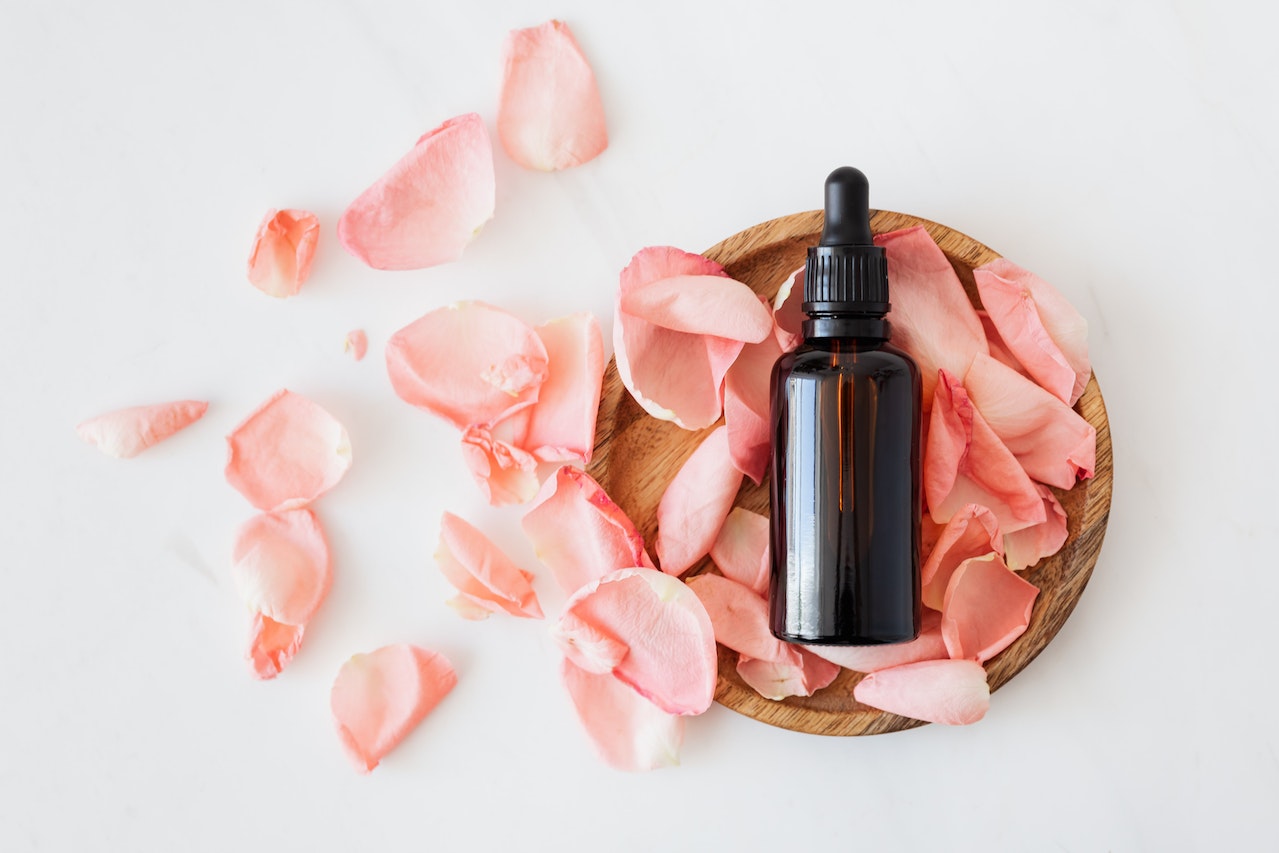Powerful Allies for Balance
Today we are talking about achieving optimal health with Ayurvedic herbs as they are powerful allies for maintaining and supporting balance in your life.

Ayurvedic Herbalism
Ayurvedic herbalism is an ancient healing practice that has been used for centuries to promote holistic health and well-being. This approach combines the use of herbs, food, massage and lifestyle practices to balance the body’s energy, or “doshas”.
The three doshas in Ayurveda represent the vital energies of life and understanding how they interact with one another is key to creating an optimal health state.
The three doshas of Ayurveda and how they affect your health
In Ayurveda, the ancient practice of Indian medicine, the three doshas represent the vital energies that sustain our physical and mental health. These doshas, known as Vata, Pitta, and Kapha, are responsible for the unique characteristics and qualities that make us who we are.
Our predominant dosha influences every aspect of our lives whether we are:
- energetic and spontaneous like the Vata dosha
- fiery and ambitious like the Pitta dosha
- grounded and nurturing like the Kapha dosha
These three doshas govern our bodies and minds. By understanding our dosha and living in harmony with it, we can achieve balance and well-being.
Embrace your inner Vata, Pitta, or Kapha and unlock your full potential for a healthy and fulfilling life!
1. Vata dosha
Vata is associated with movement, both in terms of bodily functions and mental processes.
People who have a predominant Vata dosha tend to be creative, imaginative, and quick-witted, but they can also suffer from anxiety, restlessness, and insomnia when their dosha is out of balance.
Vata is governed by the elements of air and ether, which means that it is light, cold, dry, and subtle in nature. This dosha is responsible for all kinds of movements in the body, from breathing and digestion to muscle contraction and nerve impulses.
It’s also responsible for our ability to think, learn, and communicate effectively. So, if you’re feeling a little spacey or ungrounded, it might be time to take a closer look at your Vata dosha and make some adjustments to find balance and harmony in your mind and body.
Looking for natural ways to balance Vata dosha?
From warming spices like ginger and cinnamon to calming herbs like ashwagandha and Brahmi, there are plenty of options to soothe the restless energy associated with an imbalance in Vata dosha.
Incorporating these herbs into your daily routine can help bring your body and mind into alignment, promoting a sense of balance and harmony.
2. Pitta dosha
Pitta is like fire eagerly seeking fuel to consume. This Ayurvedic concept refers to the “fiery” energy that governs our digestion, metabolism, and transformation.
People whose dominant element is Pitta tend to have a sharp intellect, fiery ambition, and a competitive streak in everything they do. They are driven and productive, but can easily become irritable, impatient, and critical when they feel out of balance.
If you’re a Pitta person, you might have a keen sense of responsibility and authority, but also experience overwhelm, anger, and burnout when you don’t take care of yourself. Learning how to balance your fiery tendencies and cultivate more chill and nourishment will do wonders for your overall health and happiness.
Out of Balance Pitta Dosha?
When it comes to balancing the Pitta dosha, Ayurvedic herbs are a great natural remedy. From cooling peppermint to soothing fennel, these herbs can help bring harmony back to your mind and body.
But why stop at just taking them internally? Why not infuse them in your skincare routine too?
Sandalwood and rose, both helpful in calming the Pitta dosha, can be found in many Ayurvedic facial oils and toners. So not only will you feel balanced from the inside out, but your skin will benefit as well.

3. Kapha dosha
Kapha is a combination of earth and water elements and is responsible for imparting stability, strength, and sweetness to our constitution.
Kapha people are typically strong, sturdy, and have a calm and composed disposition. They are often blessed with soft, smooth, and lustrous skin and hair, reflecting the Kapha element’s moisturizing quality. However, when the Kapha energy becomes imbalanced, it can lead to weight gain, lethargy, and sluggishness.
Those with excessive Kapha energy can benefit from adopting a balanced diet, regular exercise, and embracing activities that stimulate the mind and body. Illuminate your Kapha energy and live a harmonious and balanced life!
Experiencing an imbalance in your Kapha dosha?
Feeling sluggish, heavy, and just not quite like yourself? Don’t worry – Ayurvedic herbs can help bring you back into balance. Try incorporating warming spices like ginger and cinnamon into your meals, or sip on some invigorating tulsi tea.
Triphala, a combination of three fruits, can also help promote healthy digestion and elimination.
And for an extra boost, add some ashwagandha to your routine – this adaptogenic herb can help regulate stress levels and boost energy.
Give Ayurvedic herbs a try and bring balance back into your life
Using herbs is an easy and effective way to support your body’s natural processes, while helping to restore balance in the doshas.
Incorporating herbs into your routine can help boost immunity, reduce inflammation, improve digestion and even provide the body with essential vitamins and minerals.
Additionally, herbs can be used in a variety of forms, such as capsules, teas, tonics or topical applications.
Benefits of Ayurvedic herbs for health
Ayurvedic herbalism is rooted in the use of plants to support health and well-being. Different types of Ayurvedic herbs are known for their specific healing properties, including:
- adaptogenic herbs like Ashwagandha and Turmeric
- digestive aids like Amalaki, Ginger and Guduchi
- anti-inflammatory agents like Shatavari and Tulsi
- circulatory stimulants like Arjuna and Brahmi
- nervine tonics like Shankhapushpi
- and many more…
Each herb has its own unique benefits but it is important to be aware of any potential side effects associated with the herb prior to use.
When selecting herbs, it is essential to buy high-quality products that are sustainably sourced and free from contaminants.
Quality ingredients are more bioavailable, meaning they will be more effective at producing desired results.
Additionally, you may also want to consult an Ayurvedic practitioner for guidance on which herbs would be most beneficial for your individual needs.
Adding Ayurvedic Herbs to Your Health Regimen
Once you have selected your herbal preparations, integrating them into your daily life can help create a seamless transition towards better health.
Start by adding a small amount at first and gradually increase over time as needed, while paying attention to how the body responds to ensure safety and optimal efficacy.
Additionally, herbs can be used in a variety of ways such as mixing them into food, adding them to smoothies or teas, using topical applications and more.
Including Ayurvedic herbs in your herbal routine is essential for achieving optimal health. Herbs are powerful allies that can help maintain balance within the body and support its natural processes.
By selecting quality ingredients, understanding their potential side effects and integrating them into your daily life safely, you too can experience the profound benefits of Ayurvedic herbalism.
You may also be interested in the benefits of Traditional Chinese Medicine…
